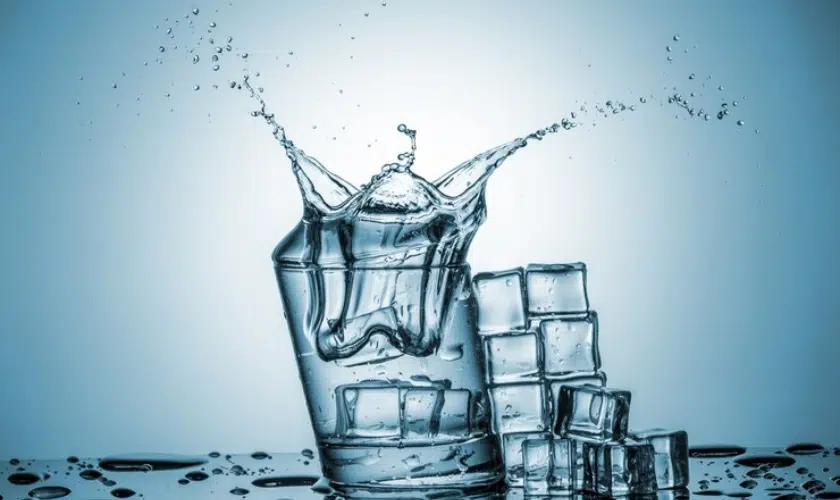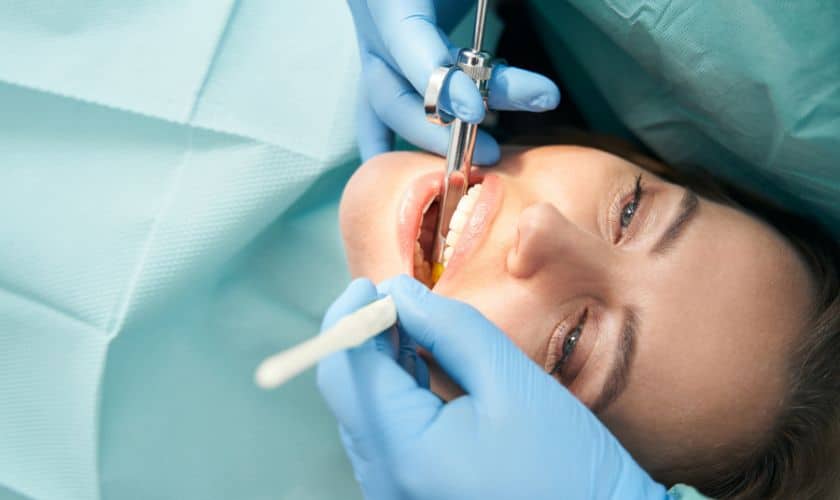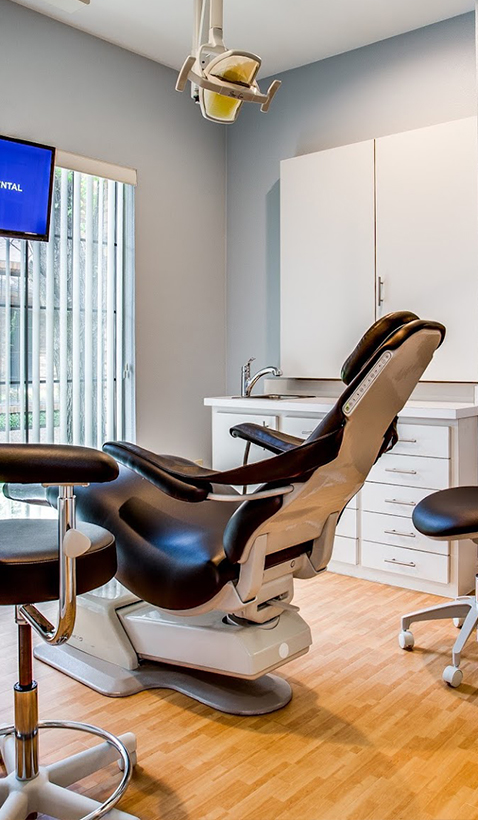
What Happens To Your Teeth When You Drink Cold Water?



Do you enjoy sipping a refreshing glass of ice-cold water, especially on a hot summer? It’s a common practice for many of us, but have you ever wondered what happens to your teeth when you drink cold water? While it might seem harmless, the effect on your dental health is more complex than you might think. In this guide, we’ll dive deep into the science behind dental sensitivity and explore the factors at play. This blog will also offer practical tips to keep your teeth healthy and happy and how a dentist in Plano, TX, can help you fight tooth sensitivity.
The Cold Water Effect
Let’s talk about what happens when you drink cold water. When you sip icy water, the sudden temperature change can cause the dentin in your teeth to contract and expand. It can irritate the nerve endings in the teeth, leading to a sharp, temporary pain sensation. This is what we commonly refer to as “tooth sensitivity.”
The severity of this sensation can vary from person to person, depending on factors like the overall health of your teeth and the extent of dentin exposure. You may experience more intense discomfort when consuming cold beverages if you have sensitive teeth or significant dentin exposure.
What is Tooth Sensitivity?
To understand the impact of cold water on your teeth, it’s essential to comprehend the science behind tooth sensitivity. Our teeth are covered by a protective layer of enamel, which shields the sensitive inner layers from external factors. However, when this protective shield weakens or gets compromised, it can lead to tooth sensitivity.
One of the main culprits behind tooth sensitivity is exposed dentin. Dentin is the layer beneath the enamel and contains tiny tubules connecting to the nerve endings inside the tooth. When dentin is exposed, it allows external stimuli, like temperature changes, to directly affect the nerves, leading to discomfort and pain.

Factors Contributing to Tooth Sensitivity
Understanding the various factors contributing to tooth sensitivity is essential for identifying the root causes of this discomfort. By delving deeper into these factors, you can better understand why your teeth might react sensitively to cold water and how to address these issues effectively. Here are some of the major factors that contribute to tooth sensitivity:
Tooth Enamel Erosion
Enamel erosion is a primary factor in tooth sensitivity. This protective outer layer of your teeth can gradually wear away for several reasons. Acidic foods and beverages, such as citrus fruits, soda, and alcoholic drinks, can weaken enamel over time. The acid content softens the enamel and makes it more susceptible to erosion. Additionally, abrasive brushing with a hard-bristle toothbrush or using a toothpaste with harsh abrasives can contribute to enamel erosion. As enamel thins or wears away, it exposes the underlying dentin, increasing the likelihood of sensitivity.
Gum Recession
Gum recession is another leading cause of tooth sensitivity. When your gum tissue pulls away from the tooth, it exposes the tooth’s roots, which are not as well-protected as the enamel-covered crown. These exposed roots are more porous and can transmit temperature changes more directly to the nerve endings within the tooth. Gum recession can result from various factors, including periodontal disease, aging, aggressive brushing, or genetic predisposition.
Cracked or Chipped Teeth
Any cracks or chips in your teeth can provide a pathway for temperature changes to reach the nerve endings within the tooth. The exposed inner layers, like dentin, are more sensitive to temperature fluctuations. Cracks or chips can occur due to traumatic injuries, chewing on hard objects, or even grinding your teeth (bruxism) during sleep. These issues should be addressed promptly to prevent further complications and reduce sensitivity.
Tooth Decay
Cavities or tooth decay can lead to tooth sensitivity. When bacteria create cavities, they eat away at the enamel, creating openings in the tooth’s inner layers. These openings allow temperature changes, such as those caused by cold water, to reach the tooth’s nerves directly. To avoid sensitivity caused by tooth decay, it’s crucial to maintain proper oral hygiene and seek prompt treatment for cavities.
How to Protect Your Teeth
Protecting your teeth from sensitivity, especially when consuming cold water or beverages, is crucial for maintaining your dental health. Here’s a detailed exploration of the strategies and practices you can adopt to shield your teeth from temperature-related discomfort:
Maintain Proper Dental Hygiene
Effective dental hygiene is the foundation of oral health. Regular brushing and flossing help remove plaque, the sticky film of bacteria that accumulates on your teeth. Plaque buildup can lead to enamel erosion and tooth decay, increasing the risk of sensitivity. To protect your enamel while maintaining cleanliness, consider these tips:
- A soft-bristle toothbrush is gentler on your enamel and gums, reducing the risk of abrasion.
- Avoid aggressive brushing, which can erode enamel and irritate gums. Brush for at least two minutes using gentle circular motions.
- Fluoride helps strengthen enamel and reduces the risk of tooth sensitivity.
Choose Toothpaste for Sensitive Teeth
Specially formulated toothpaste for sensitive teeth can be a game-changer. Look for products containing potassium nitrate, an ingredient known for desensitizing nerve endings within the teeth. Here’s how to make the most of this toothpaste:
- Use a small amount of toothpaste, as excessive use may not provide additional benefits and can be abrasive.
- Combine sensitive toothpaste with a gentle toothbrush for optimal results.
Limit Acidic Foods and Beverages
Acidic foods and drinks are known to weaken enamel over time, making it more vulnerable to sensitivity. To protect your teeth from acid-related damage:
- Limit your intake of acidic items like sodas, citrus fruits, vinegar, and pickles.
- After consuming acidic foods, rinse your mouth with water to help neutralize the acids.
Wear A Mouthguard
If you grind your teeth at night, a mouthguard can help prevent further damage to your enamel and reduce the risk of sensitivity. A custom-fitted mouthguard from your dentist is the most effective option, but over-the-counter options are also available. Follow your dentist’s recommendations- If your dentist prescribes a mouthguard, follow their instructions for proper use and maintenance.
Visit Your Dentist
Regular dental check-ups are essential for identifying and addressing issues like enamel erosion, cavities, gum recession, and other dental concerns. When visiting your dentist, consider the following:
- Be open with your dentist about any tooth sensitivity you experience. They can recommend personalized solutions.
- Professional cleanings help remove plaque and tartar buildup, maintaining your oral health.
Use a Straw
Drinking cold water through a straw can help bypass your teeth, reducing direct contact with sensitive areas. Consider these tips for using a straw effectively:
- Position the straw towards the back of your mouth. This helps the liquid bypass your teeth more effectively.
- Excessive suction can potentially damage dental work or irritate sensitive areas, so sip gently.
While drinking cold water can be a delightful experience, knowing its potential impact on your dental health is important. The science of tooth sensitivity is complex, and various factors can contribute to this discomfort. Following the tips mentioned above and taking care of your oral health, you can continue enjoying cold beverages without compromising your pearly whites. Remember that everyone’s dental health is unique, so you must schedule an appointment with your dentist in Plano, TX if you experience persistent tooth sensitivity or have concerns about oral health. With the right care and attention, you can maintain a healthy smile and savor those chilled refreshments without worry. Your teeth will thank you for it.








